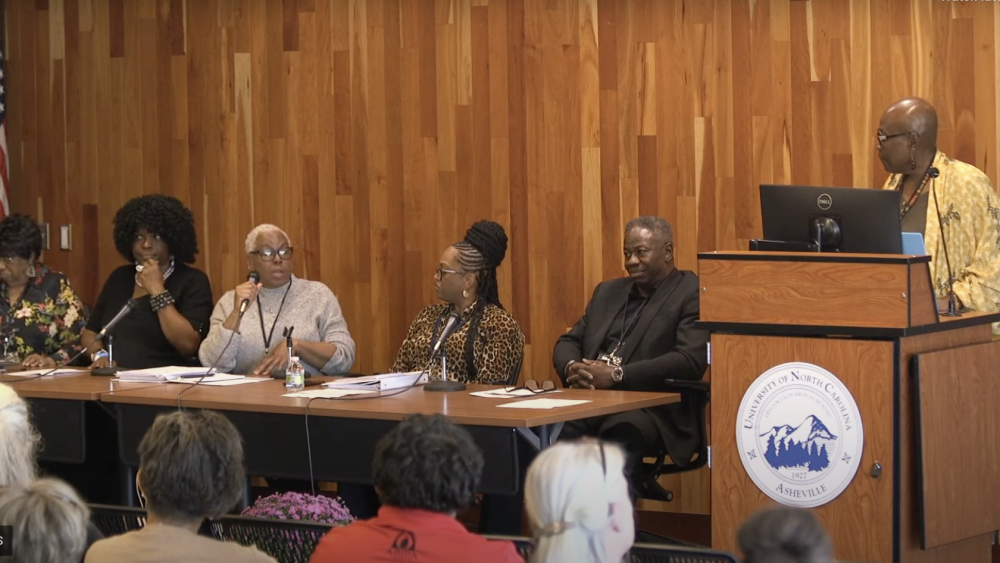We’re all about making your voice heard. So when the Community Reparations Commission put out a call for feedback on its newly released draft recommendations, we knew we had to share that request with you. The Commission has yet to finalize these recommendations and vote to present them to the City Council and the County Commissioner — the community input will be a informative resource before these steps are taken.
A little background
The Commission was formed as part of a City resolution to develop short-, medium-, and long-term recommendations that address reparations for the Black community and has been meeting since April 2022 to create a strategic plan. The City, County, and the UNC Asheville Department of Education and Africana Studies Program also hosted a summit at the beginning of this month to draw the community more deeply into the conversation, share the Commission’s findings, and give attendees a first look at what’s being recommended.
Review the recommendations
Now that the recommendations are available for wider public feedback, let’s take a look at some of the suggestions on the drafting table. The 25 total draft recommendations fall under the Commission’s five impact focus areas:
- Criminal justice includes increasing Black representation in City and County criminal justice programs and jobs + mandatory annual training for public servants in the criminal justice field.
- Economic development includes establishing an Economic Development Center for Black Asheville + funding grants for Black-owned businesses.
- Education includes a recruitment and retention package for Black educators + creating an Education Accountability Task Force.
- Health and wellness includes funding Black-owned and led health centers + mental health support for Black residents.
- Housing includes acquiring the South Charlotte Street corridor City-owned property for mixed-used, mixed-income development + creating a Black Homeownership Financial Literacy and Action Campaign.
View the full draft, then submit your thoughts to this survey. If you want to learn more about the Commission’s work, you can sit in on a meeting or sign up for regular updates.











